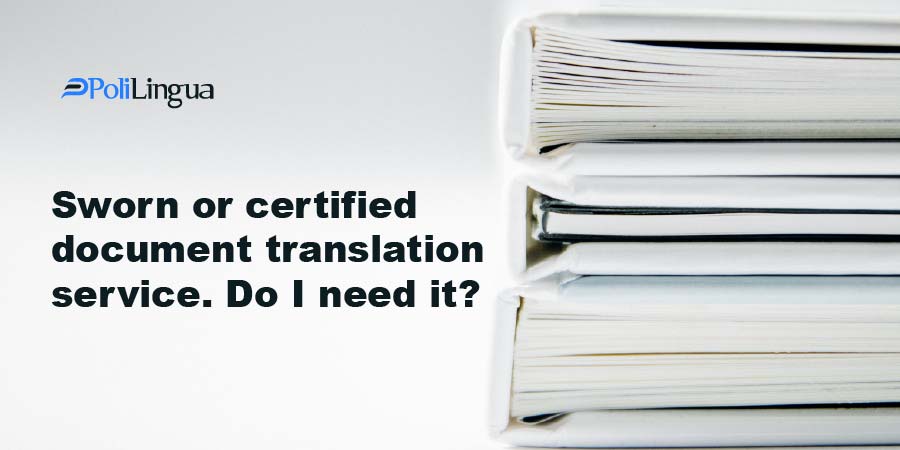
Sworn or certified document translation service. Do I need it?
If you are applying for university admission in another country, or you want to immigrate, you might be asked to provide a sworn or certified translation of your documents. If the authority you are working with requests a certified translation or a sworn translation, then yes, you definitely need to make sure that your translation meets their requirements so that it will be accepted.
What is a sworn translation or certified translation?
A certified translation is a translation that comes with a signed statement certifying that it is a true and correct translation. This certification can be provided either by a translator or the translation company he or she works for. You’ll want to make sure that the translator or company you are working with is a reliable, professional company who is able to provide this service.
Certified translations are often required when dealing when dealing with official documents, transcripts, contracts, and so on. Because the person or agency receiving the translated documents usually cannot read both languages, this certification provides them with assurance that the translation is accurate and complete.
In the US and UK, translations can be certified by any professional translator or translation company. There is no official test or accreditation required to provide this service. In other countries, particularly throughout Europe, a translator can become a “sworn” translator by submitting proof of sufficient education and experience and taking an oath before a court of law. At that point, the translations he or she completes are considered to be full and faithful renderings of the original document. A sworn translator certifies their translations by attaching them to the original documents and adding a formal declaration of accuracy. This declaration must be accompanied by the translator’s official stamp.
In the US and UK, there is no true equivalent to a “sworn” translator, although translators may have other credentials such as ATA certification which attest to their experience and qualifications. Other options for becoming an accredited translator are the Diploma in Translation, NAATI certification, or a masters degree in translation. These qualifications don’t necessarily grant any official legal standing, but they are internationally recognized as proof of a translator’s skills and professional abilities.
Why might you need a certified translation
You might need a certified translation if you want want to attend university in another country or apply for immigration. Often a translation of immigration documents or translation for university admission needs to be certified to verify its accuracy. In some situations, other types of official documents such as contracts might require certified translation in the US or the UK. In other European countries, translation of legal documents or translation of administrative documents might need to be completed by a sworn translator to ensure that they are accepted as official translations. You should always check with the person or agency you are submitting the documents to so that you can make sure you are submitting exactly what they need.
In some cases, you might need a notarized translation. This provides an additional level of trust for whatever agency you are submitting the documents to. For a notarized translation, the translator or translation agency must sign its statement of accuracy in the presence of a notary public, who then stamps and signs the document to show that he or she verifies the translator’s identity. The notary public does not actually validate the accuracy of the translation, as he or she most likely does not speak both languages.
What to look for
If you need a certified translation, you might be wondering what to look for in a translation service. If you are submitting translations of documents to the U.S. Citizenship and Immigration Services (USCIS), you need to make sure that the translation you submit meets their specific requirements. Some translation companies are familiar with the USCIS requirements and offer guaranteed acceptance of the certified translations that they provide. This is very important because, if the translation is not accepted, it could cause delays and might result in extra costs for you.
Speaking of extra costs, you might be wondering how much you have to pay for a certified translation. The good news is, they don’t need to be very expensive! Our company provides affordable certified translations by qualified translators.







